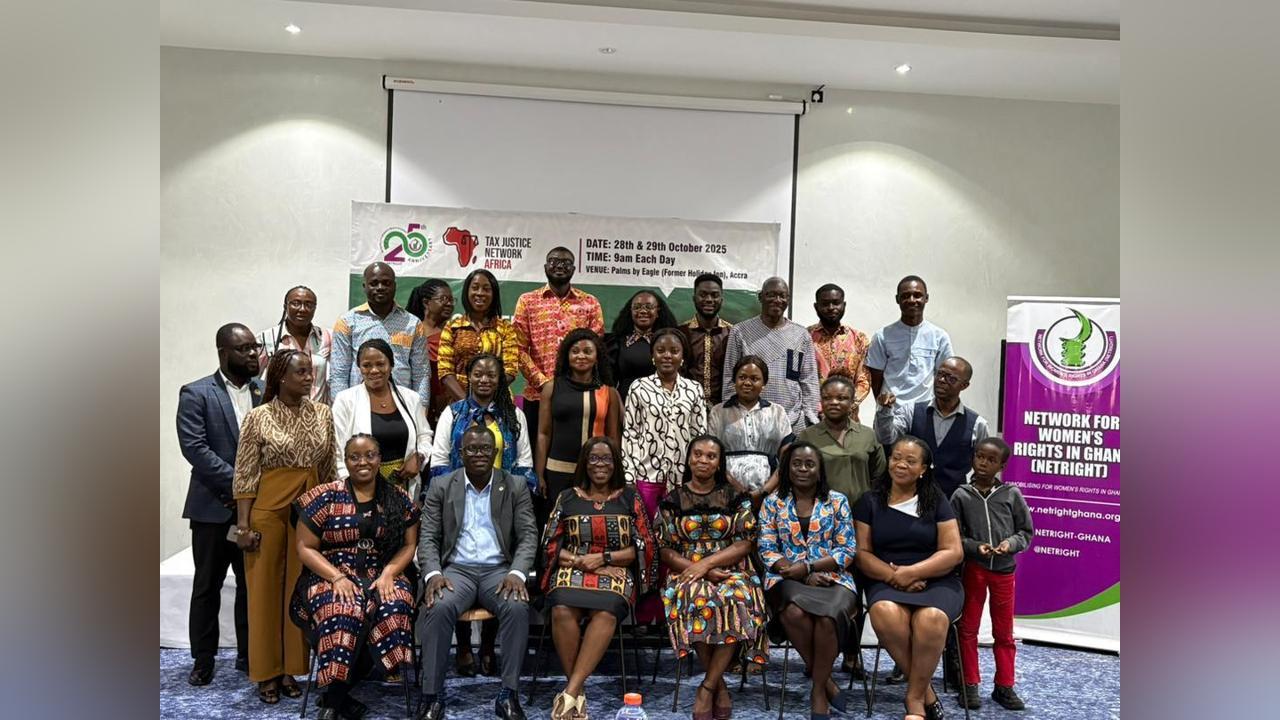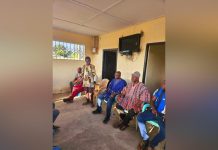Africa-Press – Ghana. Stakeholders have called for urgent tax reforms to address gender inequalities, warning that Ghana’s heavy reliance on indirect taxes disproportionately affects low-income households and workers, particularly, women, pushing many into poverty.
The stakeholders, led by the Network for Women’s Rights in Ghana (NETRIGHT) and Tax Justice Network Africa, lauded Ghana for the Affirmative Action (Gender Equity) Act, 2024 (Act 1121), passed in September 2024.
However, they noted a three-decade gap created between the passage of the country’s gender affirmative budgeting in 1990s [built on the 1995 Beijing Platform for Action] and the implementation of the Affirmative Action (Gender Equity) Act, hence, reforms to meet current challenges.
This observation was made at end of a two-day conference on promoting tax justice and combating illicit financial flows (IFFs) for inclusive and gender-equitable development, held in Accra from October 28-29, calling for urgent reforms.
The conference brought together representatives of CSOs, women’s rights groups, trade unions, academia, development partners, and some representatives from government institutions, including the Ghana Revenue Authority (GRA) and Parliament.
It was organised as part of the Phase Three of the Scaling Up Tax Justice Project, a partnership between NETRIGHT Ghana and Tax Justice Network Africa, aimed at advancing progressive taxation.
The stakeholders urged the government to address the structural gender inequalities in taxation and fiscal policies to lessen the burden on low-income earners, women, and Micro, Small and Medium-sized Enterprises (MSMEs) across the country.
Madam Patricia Blankson Akakpo, Head of Secretariat at NETRIGHT Ghana, delivering the communique after the conference, noted that such reforms would ensure a fair, transparent and accountable tax system, necessary for achieving Ghana’s economic growth aspirations, including the Sustainable Development Goals (SDGs).
She noted that the current tax regime in the country relied heavily on indirect taxes and levies on goods and services, which disproportionately affected vulnerable populations, calling on the government to include corrective measures in the 2026 budget.
“While domestic resource mobilisation has improved, Ghana’s mobilisation efforts are still insufficient to fund public investment in health, education and social protection,” she noted.
Mad. Akakpo called on the government to strengthen domestic resource mobilisation efforts by implementing policies that would make multinational companies and high-net-worth individuals meet their tax obligations.
Ms. Grace Arina, Feminist Tax Initiative Lead at Tax Justice Network Africa, speaking exclusively to the Ghana News Agency, explained that consumption taxes like the Value Added Tax (VAT) negatively affected women, especially those in the informal sector and living in poverty.
“Women are more likely to spend a large portion of their income buying basic necessities which are subject to these taxes.” Ms. Arina said, noting that pressure from fiscal constraints often increased reliance on such indirect taxes through austerity measures.
“Ghana was the first to implement gender affirmative budgeting in the 1990s. However, this took another 20 years to implement. It was implemented in 2024 with the passing into law of the Affirmative Action Bill,” she said.
She said that time lag was detrimental to women, urging the government to act swiftly to the calls by CSOs on the need for a more gender-forward and gender-responsive policies for an equitable and transformative development.
Ms. Arina all stakeholders to collaborate as a major step towards addressing the challenge, saying: “the onus is on the media to spread this information far and wide and ensure public awareness of the current issues. It’s the duty of government to implement the policies advanced by civil society. We must collaborate and work together.”
For More News And Analysis About Ghana Follow Africa-Press







